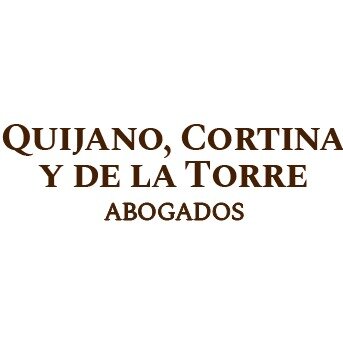Best Sanctions & Export Controls Lawyers in Mexico City
Share your needs with us, get contacted by law firms.
Free. Takes 2 min.
List of the best lawyers in Mexico City, Mexico
About Sanctions & Export Controls Law in Mexico City, Mexico
Sanctions and export controls are legal measures implemented to regulate the movement of certain goods, services, and technologies across national borders. In Mexico City, these laws aim to address issues like national security, prevention of illegal trade, international obligations, and support of foreign policy goals. Both international sanctions-such as those mandated by the United Nations-and Mexican domestic laws play a role in determining what can be imported, exported, or transacted with specific individuals, entities, or countries.
Mexico City, as the capital, is a hub for international business and trade. As such, local authorities closely monitor and enforce compliance with relevant sanctions and export control laws to ensure businesses operate within legal boundaries and do not inadvertently facilitate prohibited transactions.
Why You May Need a Lawyer
Legal counsel can be crucial when dealing with sanctions and export controls because these laws are complex and frequently change in response to international developments. Here are some common situations where a lawyer’s assistance is invaluable:
- Facilitating international trade or cross-border transactions where certain goods, technologies, or services may be regulated or restricted
- Dealing with potential investigations or audits from customs or law enforcement agencies
- Ensuring compliance when expanding business globally or entering new markets
- Understanding whether partners, suppliers, or customers appear on restricted or sanctioned lists
- Seeking to import or export dual-use items-goods that can serve both civilian and military purposes
- Addressing questions about fines, penalties, or administrative actions resulting from inadvertent violations
- Navigating licensing requirements for special categories of products or technology
- Responding to requests for information from government bodies or foreign authorities
A specialized legal advisor can help prevent costly mistakes and provide guidance tailored to your specific business needs.
Local Laws Overview
Sanctions and export controls in Mexico City are governed by a mix of domestic and international law. The main legal framework includes:
- Foreign Trade Law (Ley de Comercio Exterior) - Regulates the entry and exit of goods across Mexican borders and empowers the government to implement restrictions or prohibitions as needed.
- Customs Law (Ley Aduanera) - Details customs procedures, inspection mechanisms, and penalties for violations related to imports and exports.
- Arms and Dual-Use Goods Control - The Federal Law on Firearms and Explosives and other administrative regulations control sensitive or dual-use goods.
- International Commitments - Mexico adheres to United Nations sanctions and participates in international regimes such as the Wassenaar Arrangement and the Nuclear Suppliers Group, which guide the national application of controls over certain exports.
Specific government agencies, such as the Secretary of Economy (Secretaría de Economía), the Mexican Customs Service (Aduanas), and the Ministry of Foreign Affairs (Secretaría de Relaciones Exteriores), all play roles in enforcing these rules within Mexico City.
Frequently Asked Questions
What are export controls?
Export controls are laws that restrict or regulate the transfer of goods, software, or technology out of Mexico. They may apply due to national security, foreign policy, or international agreement purposes.
Who enforces sanctions and export controls in Mexico City?
Enforcement responsibilities are shared among agencies like the Secretary of Economy, Mexican Customs Service, and Ministry of Foreign Affairs, among others.
Do international sanctions apply in Mexico?
Yes, Mexico enforces United Nations sanctions and may implement other international commitments that restrict certain transactions.
What kinds of goods are typically regulated?
Items such as weapons, military equipment, dual-use goods (civil and military), chemicals, high-tech products, and sensitive technology are often subject to regulation.
Are there penalties for violating export controls or sanctions?
Yes, violations can result in administrative fines, seizure of goods, suspension of licenses, and in some cases, criminal prosecution.
Do I need a license to export certain products?
Many controlled goods require an export license issued by the Secretary of Economy or relevant authority. You should always verify licensing requirements before exporting.
Can a company work with sanctioned entities if the transaction does not occur in Mexico?
No. If a company operating in Mexico facilitates a prohibited transaction, even if executed elsewhere, it may still be in violation of Mexican and international law.
How can I find out if my products are subject to export controls?
Consult the tariff classifications and control lists maintained by the Secretary of Economy and review any applicable international obligations.
What should I do if I suspect a partner is on a sanctions list?
Immediately consult with a lawyer and cross-check the partner using official government lists to determine your legal obligations before proceeding.
Can individuals be sanctioned or are these laws only for businesses?
Both individuals and businesses can be subject to sanctions and export controls. Individuals may face penalties for violations just like companies can.
Additional Resources
Here are important organizations and resources offering support or information about sanctions and export controls in Mexico City:
- Secretary of Economy (Secretaría de Economía) - Provides official lists, licensing information, and guidelines for controlled exports and compliance advice.
- Mexican Customs Service (Aduanas) - Handles inspections, documentation, and enforcement at borders and ports of entry.
- Ministry of Foreign Affairs (Secretaría de Relaciones Exteriores) - Manages Mexico’s participation in international sanctions and provides related information.
- Mexican Business Chambers - Many industry associations provide compliance resources and event seminars on trade regulations.
- Legal Aid Clinics and Trade Law Specialists - Many universities and private practitioners offer initial consultations or educational materials to assist with compliance.
Next Steps
If you believe you may need legal help with a sanctions or export controls issue in Mexico City, begin by:
- Gathering all relevant documents regarding your import, export, or transaction
- Making a list of all parties involved in your business activities
- Reviewing communications you have received from authorities or business partners
- Contacting a lawyer with expertise in sanctions and export controls or reaching out to a relevant government office for preliminary guidance
- Requesting a consultation to explain your situation and get an assessment of risk and compliance requirements
Legal experts can help you understand your obligations, minimize risk, and proceed with your business activities while staying compliant with Mexican and international law. Proactive steps can save your business from inconveniences, financial losses, and legal consequences.
Lawzana helps you find the best lawyers and law firms in Mexico City through a curated and pre-screened list of qualified legal professionals. Our platform offers rankings and detailed profiles of attorneys and law firms, allowing you to compare based on practice areas, including Sanctions & Export Controls, experience, and client feedback.
Each profile includes a description of the firm's areas of practice, client reviews, team members and partners, year of establishment, spoken languages, office locations, contact information, social media presence, and any published articles or resources. Most firms on our platform speak English and are experienced in both local and international legal matters.
Get a quote from top-rated law firms in Mexico City, Mexico — quickly, securely, and without unnecessary hassle.
Disclaimer:
The information provided on this page is for general informational purposes only and does not constitute legal advice. While we strive to ensure the accuracy and relevance of the content, legal information may change over time, and interpretations of the law can vary. You should always consult with a qualified legal professional for advice specific to your situation.
We disclaim all liability for actions taken or not taken based on the content of this page. If you believe any information is incorrect or outdated, please contact us, and we will review and update it where appropriate.

















